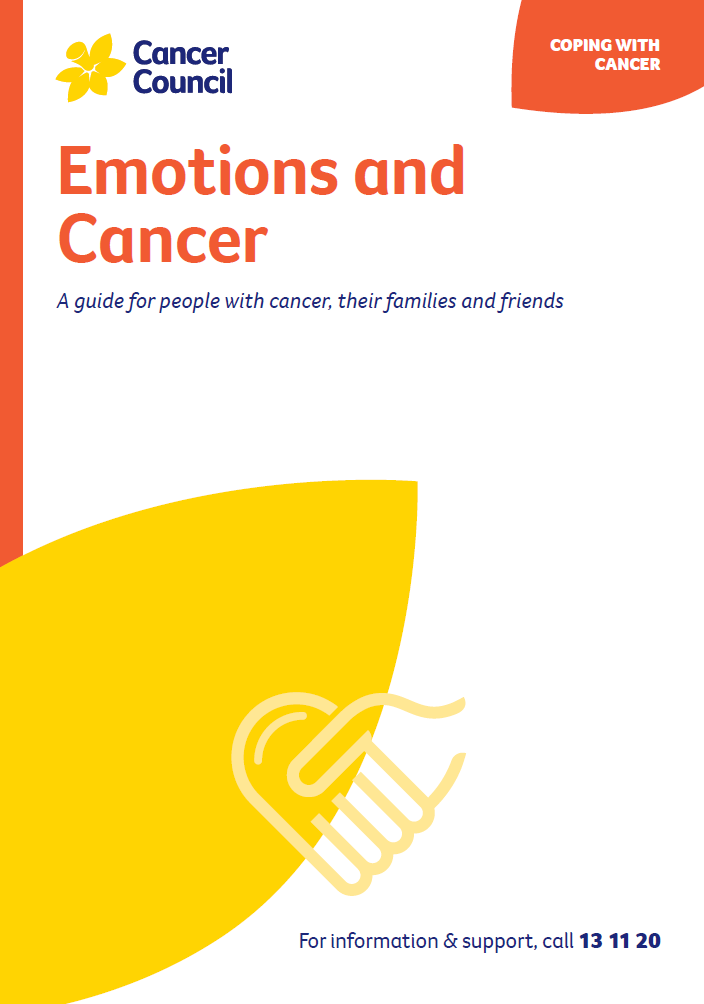- Home
- About Cancer
- Advanced cancer
- Understanding grief
- How you might feel
- Emotions
- Tips for coping with your emotions
Tips for coping with your emotions
Here are some helpful tips for managing your emotions, including ways to manage anger and the importance of physical activity.
- Accept that your feelings are to be expected given the loss. You might sense pressure from yourself or others to behave in a certain way, but remember that everyone has their own style of coping.
- Be patient with grief. You may feel that after a certain time you should be “moving on”, but your adjustment to the loss is likely to be gradual, and may take longer than you or others expect. (Learn when to seek professional help.)
- If you feel anger, find safe ways to show it – exercise, scream or shout, write, paint or draw.
- Try to make movement a part of your daily routine. Research has shown that regular physical activity can help with feelings of anger, stress, anxiety and depression.
- Reflect on the experience of your caring role – you may feel you are stronger than you realised and be proud of how you supported someone as they were dying. Even the small things you did showed how much you cared.
- Forgive yourself for the things you didn’t say or do.
- Be kind to yourself for any wrongs you feel you did to the person who died. People often feel that they should not have become frustrated or “snapped” that one time when they were tired. Understand that tiredness and irritability are common when caring for someone.
- Take your mind off your grief for a little while – read a book, write in a journal, start a new project, play a game online, or watch a movie with a friend or on your own.
- Try complementary therapies, such as meditation, music therapy or art therapy, to help you manage your feelings.
→ READ MORE: Managing your thoughts
Podcast: Meditation and relaxation
Listen to more of our meditation and relaxation podcast for people affected by cancer
Podcast: Coping with Grief
Listen to more episodes from our podcast for people affected by cancer
More resources
A/Prof Lisa Beatty, Associate Professor in Clinical Psychology and Consulting Clinical Psychologist, Flinders University Institute of Mental Health and Wellbeing, SA; Sandra Anderson, Consumer; Dr Alexandra Clinch, Palliative Medicine Specialist and Deputy Director, Palliative Care, Peter MacCallum Cancer Centre and Royal Melbourne Hospital, VIC; Christopher Hall, Chief Executive Officer, Grief Australia; Nathan MacArthur, Specialist Grief Counsellor and Accredited Mental Health Social Worker, Sydney Grief Counselling Services, NSW; Linda Magann, Clinical Nurse Consultant – Palliative Care, St George Hospital, NSW; Palliative Care Australia; Richard Upton, Consumer; Lesley Woods, 13 11 20 Consultant, Cancer Council WA.
View the Cancer Council NSW editorial policy.
View all publications or call 13 11 20 for free printed copies.

